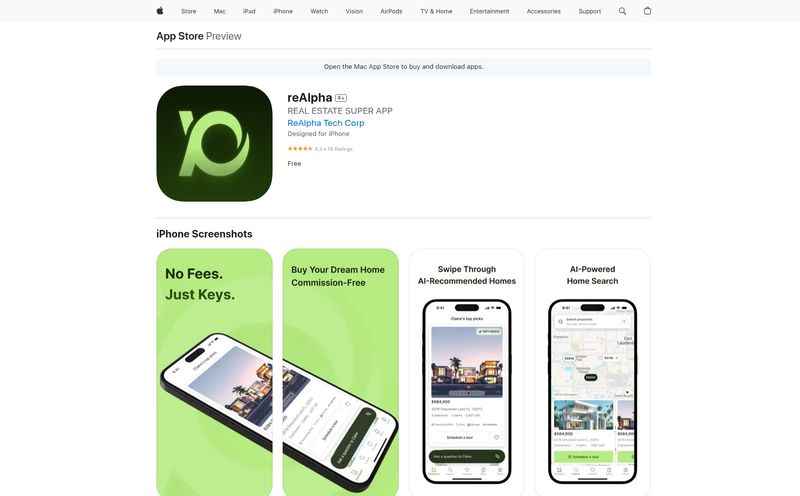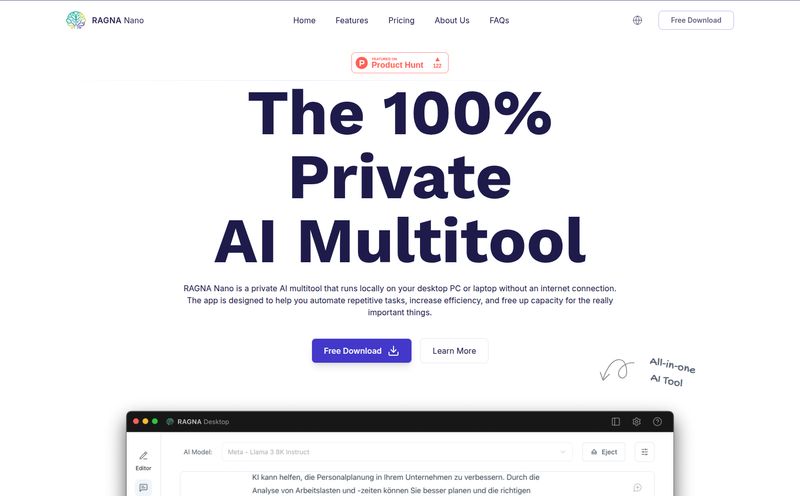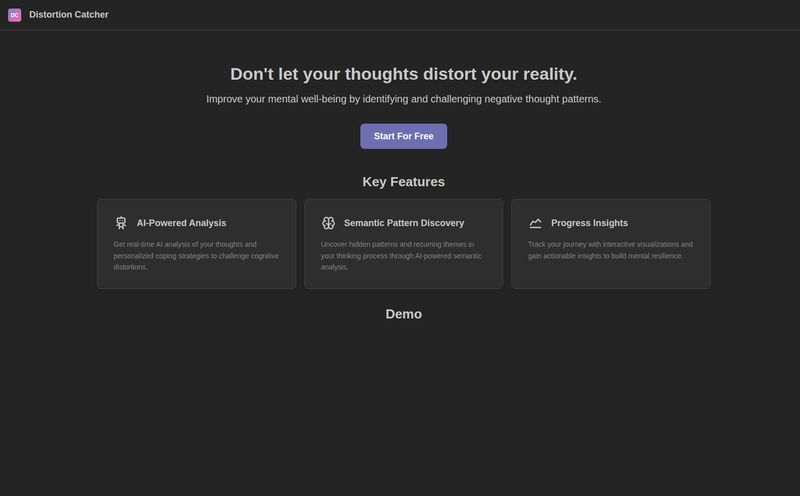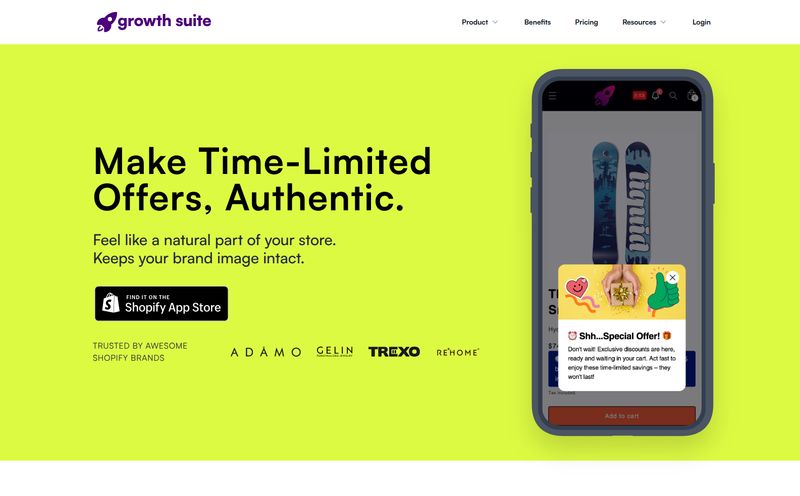Hiring freelancers can be an absolute grind. You post a job, and within hours, you’re buried under an avalanche of proposals. Some are good, some are... baffling, and most are copy-pasted templates that have nothing to do with your project. It's like trying to find a needle in a haystack, except the haystack is on fire and also asking for your budget upfront.
I’ve been there more times than I can count. I once tried to hire a graphic designer for a simple infographic and ended up with 70+ applicants in a day. Seventy! Sifting through portfolios, checking references, trying to gauge who actually read the brief—it took two full days. That's two days I wasn't spending on keyword research, traffic analysis, or, you know, my actual job.
So, when I hear about a platform that promises to use AI to do the heavy lifting, my ears perk up. Part of me is skeptical (AI can barely recommend a good movie, can it really pick a project team?), but the other, more exhausted part of me is intrigued. That’s what led me to MatchBox. It’s been making some noise, so I decided to pop the hood and see if this thing is just another shiny object or a genuinely useful tool for people like us.
So, What Exactly Is MatchBox?
At its heart, MatchBox is a talent marketplace, but with a pretty significant twist. Instead of you wading through a sea of freelancers, it uses an AI-powered algorithm to find and recommend the right people for your project. Think of it less like a massive, chaotic public market and more like a boutique talent agency where a very smart, very fast matchmaker works just for you.
The platform is built to connect businesses with vetted experts across a bunch of fields—we’re talking design, development, marketing, the whole shebang. The goal is to cut out the noise and the endless scrolling, connecting you directly with a curated list of professionals who are actually a good fit. A bold claim, for sure.
The AI-Powered "Secret Sauce"
The core of MatchBox is its AI matching engine. This isn't just about keyword matching your job post to a freelancer's profile. From what I can gather, it’s designed to understand the nuance of your project needs. You're not just looking for a "web developer"; you're looking for a front-end developer with React experience who understands e-commerce conversion funnels and can start next Tuesday.
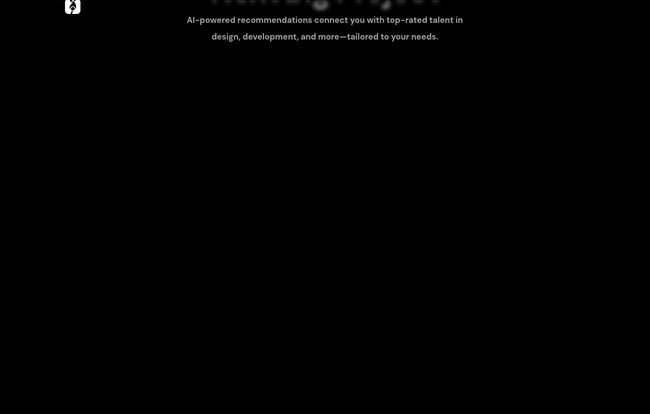
Visit MatchBox
The AI supposedly analyzes your project requirements and cross-references them with its pool of talent, considering skills, experience, availability, and probably a dozen other data points we can't see. The end result? Instead of 70 proposals, you get a handful of highly relevant candidates. At least, that's the dream. It’s an interesting approach that moves beyond the simple search bar and tries to add a layer of intelligence to the process.
Key Features That Actually Matter
Beyond the AI, a few things stood out to me as genuinely practical for anyone managing projects.
More Than Just a Match, You Can Build Your A-Team
One of the coolest aspects is the ability to build custom teams. We all know that bigger projects are rarely a one-person job. You need a developer, a UX designer, and maybe a copywriter who understands SEO. MatchBox allows you to assemble this entire crew through their platform. This is a huge plus. Managing a project is so much easier when the team is sourced from one place and is used to a certain workflow, rather than being a collection of random hires from three different sites.
Vetting That Isn't Just a Checkbox
Anyone can make a profile on most freelance sites and call themselves an expert. MatchBox claims to have a rigorous screening process for their talent. This is music to my ears. A smaller pool of high-quality, verified professionals is infinitely better than a massive pool of unknowns. It’s the difference between a curated art gallery and a flea market. Both have their place, but when my project's success is on the line, I know which one I'd rather visit.
The Pricing Structure (Let's Talk Money)
Transparency in pricing is a big deal for me. I hate hidden fees and complicated commission structures. MatchBox seems refreshingly straightforward here. They have a tiered system that caters to different levels of need, and the fees are clear.
Here’s a quick breakdown as I see it:
| Plan | Cost | Key Features | Best For |
|---|---|---|---|
| Starter | Free | Basic AI matching, 12 bids/month, 10% transaction fee. | Clients who want to test the waters or have infrequent, smaller projects. |
| Pro | €14.99 /month | Enhanced AI, unlimited bids, 7% fee, premium badge, priority support. | Serious project managers and businesses who hire regularly and want better matches and lower fees. |
| Elite | €34.99 /month | Featured placement, 3% fee, elite badge, exclusive projects, dedicated support. | Agencies or companies managing multiple large-scale projects that need top-tier talent and the lowest possible fees. |
The fee structure is competitive. A 3% fee on the Elite plan is very attractive compared to the 10%, 15%, or even 20% that other platforms can take. Even the free plan's 10% is pretty standard. The annual discount is a nice touch, too.
My Honest Take on MatchBox
Okay, so it sounds good on paper. But as an SEO, I’m paid to be skeptical. So here’s my balanced take.
The Wins: The biggest potential win here is time. The hours I could save by not having to manually vet dozens of candidates is immense. That time translates directly into money. The emphasis on vetted talent is another huge plus. Quality over quantity is a philosophy I live by, whether it's backlinks or job applicants. And building a cohesive team instead of just hiring a single freelancer is a powerful concept for anyone tackling a complex project.
The Worries: My main hesitation circles back to the AI. Can an algorithm truly grasp creative nuance? Can it tell the difference between a good writer and a writer with the perfect voice for my brand? I'm not entirely convinced. There's also the potential for a learning curve with their integrated tools, and there isn't a lot of public data yet on the success rate of their AI matches. It's a black box to some extent, and you have to put a certain amount of faith in teh system.
Who is MatchBox Really For?
After digging in, I have a pretty clear picture of the ideal MatchBox user. This platform seems perfect for:
- Startups and SMBs: Companies that need to move fast and build a skilled team without a dedicated HR department.
- Project and Marketing Managers: Professionals who are tired of the hiring grind and want a more efficient way to source reliable talent for their campaigns and projects.
- Anyone Building a Team: If your project needs more than one person—say, a developer and a designer—the team-building feature is a game-changer.
It might be less ideal for someone looking for a quick, one-off, five-dollar task. The platform is geared towards finding high-quality professionals for meaningful projects, not just gig work.
How MatchBox Stacks Up Against the Giants
It's impossible not to compare MatchBox to the 800-pound gorillas in the room like Upwork and Fiverr. But I don't think it's competing on the same field. Those platforms are open marketplaces. They're built on volume. MatchBox is positioning itself as a curated, intelligent solution. It’s not about giving you the most options; it’s about giving you the best options. It's the difference between a Costco and a specialty delicatessen. You go to Costco for a 50-pack of tube socks, you go to the deli for perfectly aged prosciutto.
Frequently Asked Questions about MatchBox
- 1. How does the AI matching actually work?
- It analyzes the specific skills, experience level, and other requirements listed in your project brief and matches them against its database of vetted freelancers to provide a shortlist of the most suitable candidates, saving you from manual searching.
- 2. Is MatchBox free to use for clients?
- Yes, there is a free Starter plan for clients. You only pay a transaction fee (10% on the Starter plan) when you process a payment to a freelancer. Paid plans offer lower fees and more features.
- 3. What kind of freelancers can I find on MatchBox?
- You can find a wide range of top-tier talent, with a focus on roles in design, development, and marketing. The platform is geared towards professional-level projects.
- 4. What makes the vetting process special?
- While details are proprietary, MatchBox states that freelancers are rigorously screened. This implies a process that goes beyond simple profile creation to ensure a higher standard of quality and reliability in their talent pool.
- 5. Are the transaction fees competitive?
- Yes. The fees range from 10% on the free plan down to just 3% on the Elite plan, which is very competitive and often lower than many other major freelance platforms.
- 6. Can I build a whole team for a project?
- Absolutely. This is one of its standout features. You can use the platform to assemble a custom team of different specialists, like a developer, a designer, and a marketer, all for one cohesive project.
The Final Verdict: Is It a Match?
So, what's the bottom line? I'm cautiously optimistic. MatchBox is taking a stab at solving a real, persistent problem in the world of work. The drudgery of hiring is a huge bottleneck for growth, and any tool that can genuinely streamline that process is worth its weight in gold.
While I still have my questions about the AI's ability to capture that human spark of creativity, the overall proposition is compelling. The focus on vetted talent, competitive fees, and team-building capabilities makes it a powerful contender. For any business owner or manager who values their time and is looking for quality talent, MatchBox is definitely worth a look. It might just be the spark your next big project needs.
